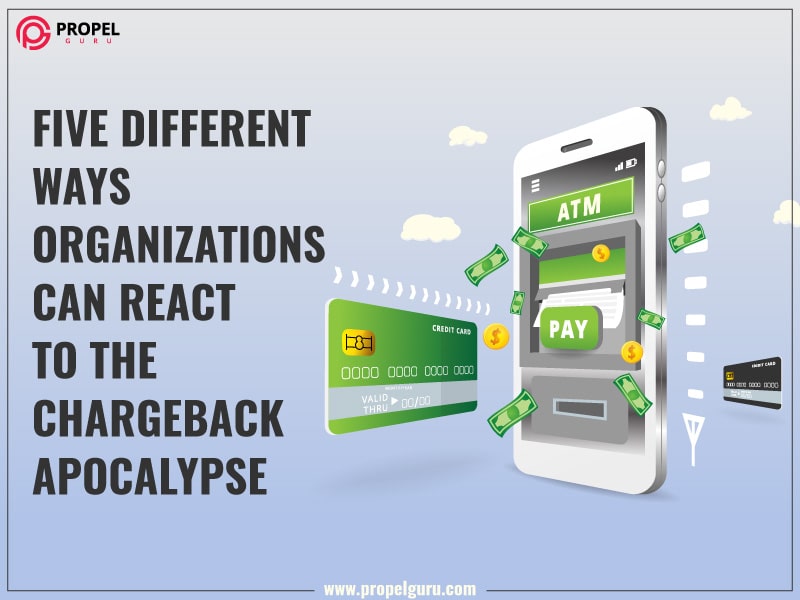Sharing is caring!
The COVID-19 pandemic has disturbed nearly every part of businesses worldwide, and payments are no special. Airlines, which have been among the hardest hit, have been confronted with various legal claims over their refusal to provide refunds to travelers who can’t venture out as arranged due to canceled flights and government travel limitations.
As anyone might expect, developing numbers of buyers are turning to chargebacks with an end goal to get their cash back for products and services they have paid for yet haven’t arrived, or for which they no longer need due to the pandemic.
Credit card networks allow cardholders to chargeback payments with an end goal to shield them from false charges and merchants who fail to deliver the products and services they’ve promised.
Truly more disturbance than obstruction or even existential danger to business, chargebacks in specific enterprises, for example, travel, have soared in the last few months.
As indicated by consultancy Aite Group, from mid-March until the finish of April, cardholders disputed three-fold the number of purchases as they did pre-pandemic. Because of this pattern, some merchant account providers and third-party payment processors are forcing difficult holdbacks that keep businesses from accessing large amounts of funds from credit card payments.
Here are five different ways businesses can address the difficulties brought about by the apocalyptic chargeback environment.
1. Use Elective Installments
Buyers are inclined toward credit card payments for a lot of reasons. For the most part, credit card companies offer their customers many forms of protection that can prove to be useful when they enter into a dispute with a business.
While most businesses that accept credit card payments don’t have the power and protection to stay protected against chargebacks, the pandemic-driven increment in chargebacks gives specific businesses the motivation to think about alternative payment techniques, such as automated clearing house (ACH), wire transfers, and even Bitcoins. These methods may be particularly fitting for more prominent exchanges just as payments for non-refundable items and services to be delivered in the future.
In different cases, businesses may find that the utilization of escrow is proper. Escrow utilizes a third party to hold and disseminate reserves dependent on highly-specific contractual terms
2. Embrace Refunds
While numerous businesses are battling for survival, there’s regularly a solid contention to be made that in probably a few cases, issuing proactive refunds to customers is the most sensible move available.
Battling chargebacks can be troublesome and tedious, and in any event, while doing so is conceivable, compelling customers not to pursue the chargeback, in any case, can contrarily influence customers’ impression of the business and scratch future deals. So while issuing refunds when they may not lawfully be required to, is an intense pill to swallow, it’s not surprising that various businesses have selected to adopt this strategy.
Various American auto insurance businesses, for example, have been giving partial premium refunds to customers who are driving less due to the pandemic.
Even though the transient effects of refunds can be huge, it allows businesses to create generosity at an extremely troublesome time and improve the probability that customers will keep working with them when the world returns to normal.
3. Make Customers An Offer That Is Tough To Refuse
A willingness to give refunds to customers doesn’t need to be a complete capitulation. A few businesses may find that they have chances to make innovative arrangements under which customers can decide to do without refunds in return for the delivery of items or services later on under increasingly appealing terms.
For instance, some professional sports teams in the United States have offered season ticket holders the choice to get future credits rather than refunds, with those picking credits also able to receive extra credits.
4. Up-Sell Insurance
In some industries like travel, it might be conceivable to offer customers the capacity to purchase protection that would secure their purchases. Airlines and online travel agencies, for example, regularly up-sell trip cancellation insurance at the hour of purchase. While such insurance probably won’t cover pandemics, the current epidemic is a reminder that unanticipated occasions can happen.
Post-COVID-19, it’s conceivable that more shoppers will think about buying insurance, so businesses that may have the option to offer. It ought to investigate their choices, as upsold insurance can be an excellent source of significant incremental revenue.
5. Be Prepared To Fight Back
The customer isn’t in every case, right. Where customers are sensibly accepted to be exploiting the pandemic to squirm out real installment commitments, businesses frequently have the alternative of fighting a reasonable and justified legal battle.
That is because, subject to a legally-binding agreement with proper terms, a customer’s quest in charging back a credit card transaction doesn’t wipe out his or her commitments under the agreement. Set forth plainly, a credit card issuer’s dispute division isn’t an official courtroom, and keeping in mind that though it has the power to switch a charge, it still can’t void an agreement.
If a business and its customer go into a substantial agreement under which payment obligations are non-cancellable and non-refundable, the business will probably be able to make a legitimate move against the customer if he or she utilizes a chargeback to turn around payment and along these lines breaches the terms of the agreement.
Making the right move against customers probably won’t be feasible relying upon the amounts in the dispute, and doing so is an atomic choice with possibly tremendous reputational consequences. In any case, in extreme cases, it may be the primary choice that could keep customers from skipping out on payment obligations.
Contact Propel Guru if you need assistance on how to improve sales during these challenging times.

Nitish Bhardwaj
Chief Technical Officer
Experienced executive with an emphasis on efficiency, process, follow-through, collaboration, and delivering results. Proven ability to successfully manage individuals, groups, and businesses to reach goals. Highly organized with excellent written and verbal communication skills and adaptable to change. Adept at streamlining processes and procedures and able to wear many hats and juggle multiple priorities.



